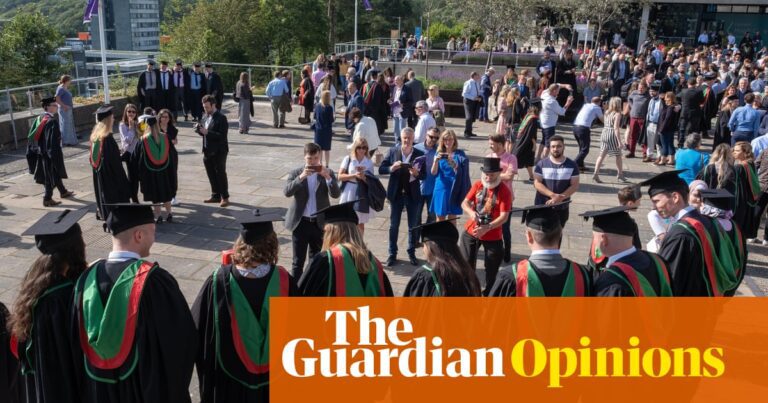The Impact of AI on Young Graduates: Navigating a Changing Job Market
September marks a pivotal moment in the lives of many young people as they embark on the journey of higher education. Excitement fills the air as students aged 18 and 19 travel to their new university accommodations, ready to dive into what they hope will be transformative experiences. Reflecting on my own arrival in Exeter in 2022, I was unaware that this was merely the calm before the storm—a disruption that generative AI would soon unleash on the job market for new graduates.
Fast forward to 2025, and the reality for many of those young individuals has drastically changed. As they step into the job market, many are confronted with roles that no longer exist. Companies across various sectors are tightening their hiring processes, with major accounting firms reporting significant reductions in their graduate recruitment programs. Deloitte, for instance, cut its graduate intake by 18%, while EY reduced theirs by 11%. According to data from Adzuna, entry-level job opportunities in finance plummeted by over 50%, with IT services seeing a similar decline.
Artificial intelligence is the key culprit behind this seismic shift, automating numerous entry-level positions that were once prime opportunities for recent graduates. This technological advancement has compelled businesses to rely on AI for executing tasks traditionally performed by human employees, making it increasingly difficult for graduates to secure jobs. The sense of achievement that once accompanied the job-hunting process—navigating rigorous interviews and competing with fellow candidates—has now been overshadowed by the harsh reality of an unstable job landscape.
Gone are the days when graduates could confidently anticipate stable employment in fields like accounting or consulting, professions historically regarded as secure and lucrative. With many traditional roles evaporating, candidates often find themselves trapped in a cycle of disappointment, as AI systems frequently screen applications before they ever reach a human hand. Friends lament the impersonal experience of interviewing via webcam, hoping AI favors them, only to repeat the process with little success.
Creative fields and roles requiring human interaction seem initially insulated from the AI takeover. Professions such as medicine, nursing, and the arts may still provide some security, though that may change. As AI technology evolves, the risk grows that even these once-safe havens may face devaluation, as artists and creatives find their work overshadowed by AI-generated alternatives that can mimic human creativity.
The debate around the value of different degrees is heating up, especially among conservative politicians and mainstream media. They often assert that more practical degrees, like accounting, hold greater value than those in the humanities. However, as the job market shifts dramatically, the question arises—what worth does a degree in accounting hold if the associated jobs are vanishing? In contrast, degrees that develop critical thinking and transferable skills—such as anthropology or Islamic studies—may possess newfound relevance in a rapidly evolving employment landscape.
The end of university life is already a daunting experience for many graduates. After spending three to four years meticulously crafting resumes and networking, the reality of entering an unrecognizable job market can be overwhelming. Young adults today face the disheartening prospect of AI taking over roles they were led to believe their degrees would secure. In just a year, the job market will likely look drastically different than it does now, as success stories turn into cautionary tales.
With employers urging students to embrace AI as a means to enhance productivity, the reality becomes more perplexing. Young graduates must grapple with the challenge of navigating a landscape where the promise of efficiency seems to push them further from meaningful career opportunities, emphasizing the need for adaptability and resourcefulness in uncertain times.

